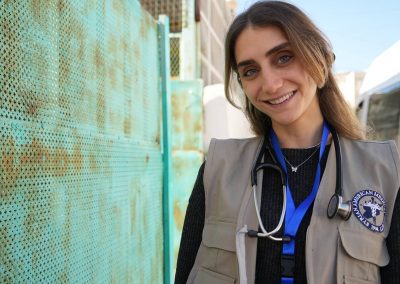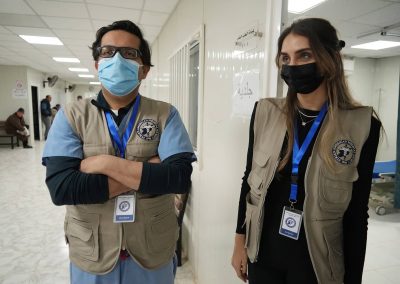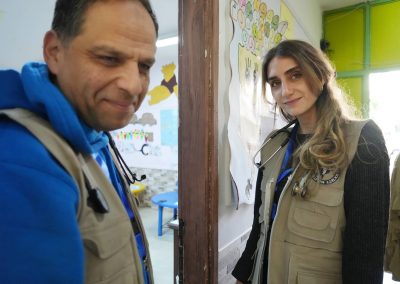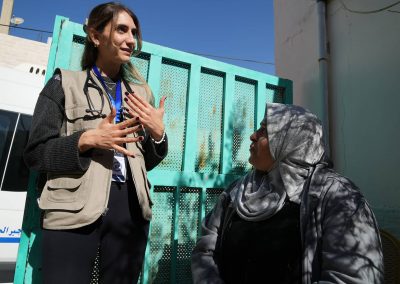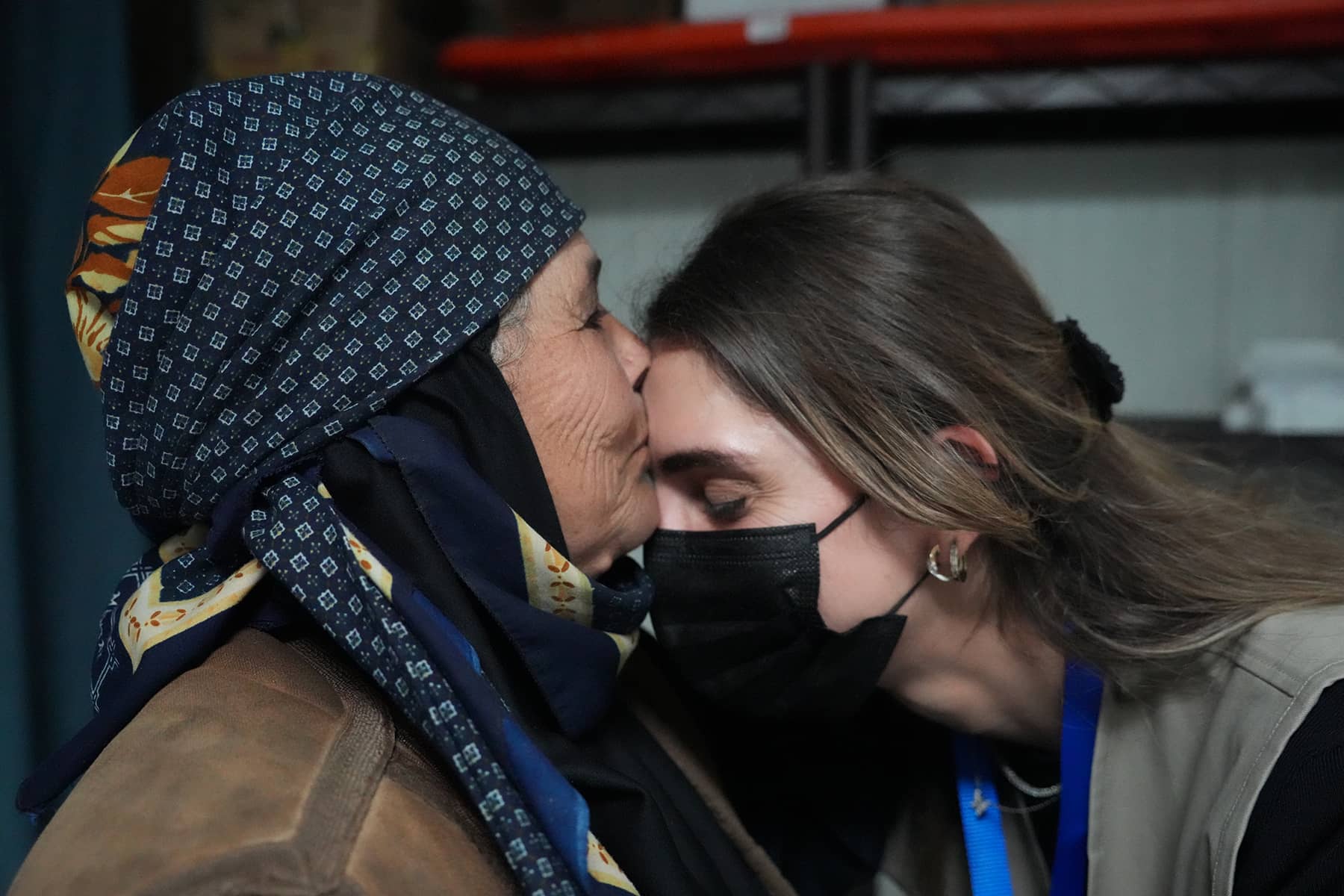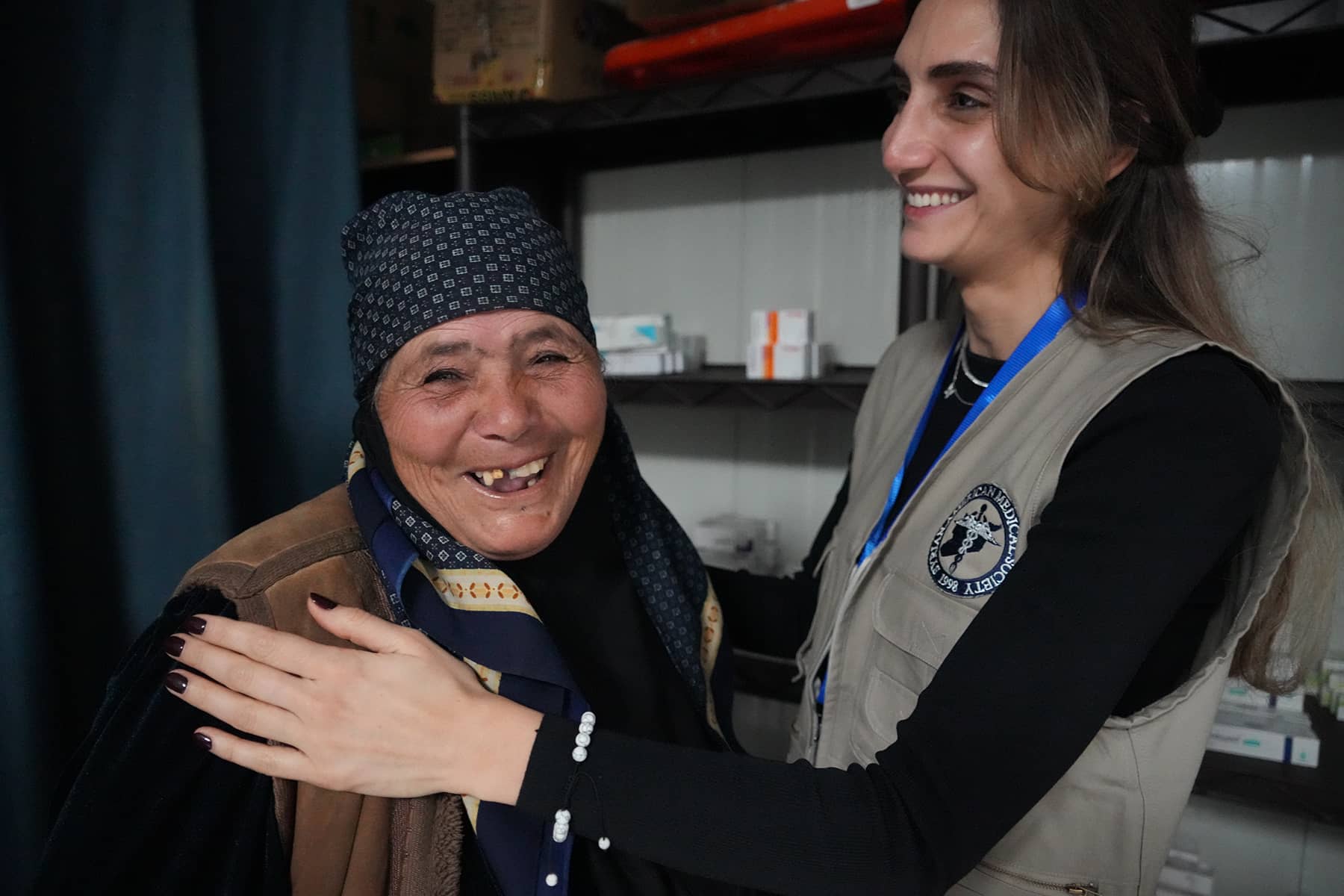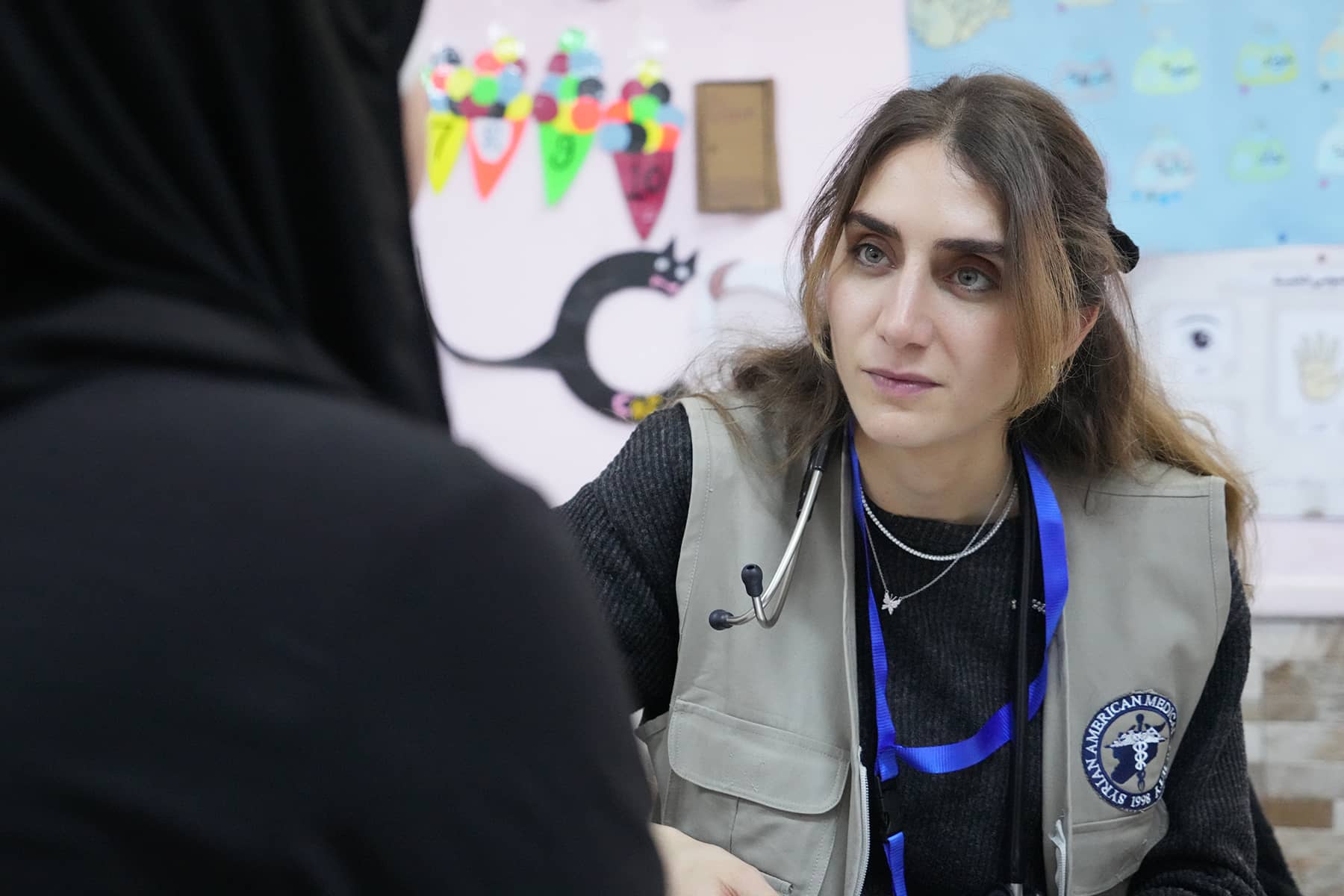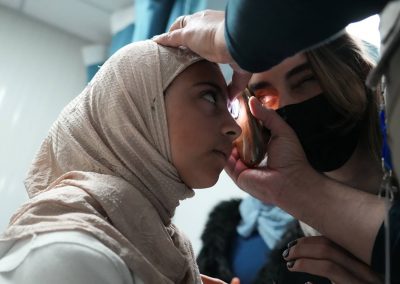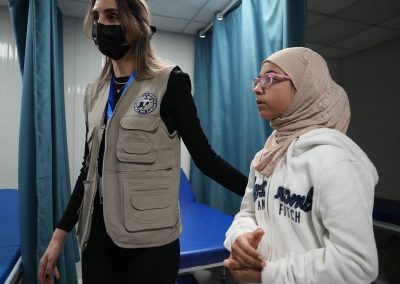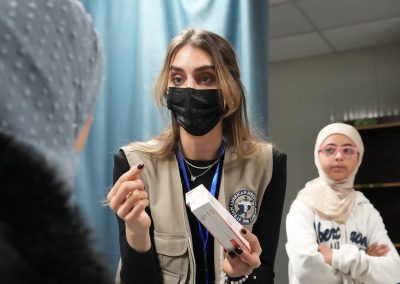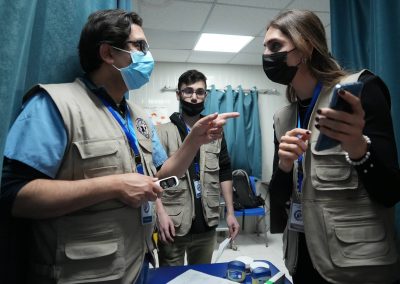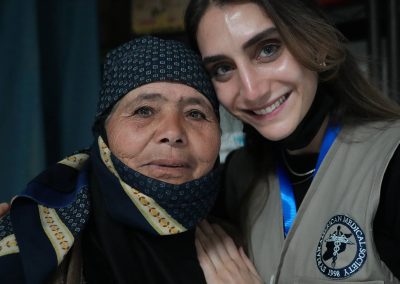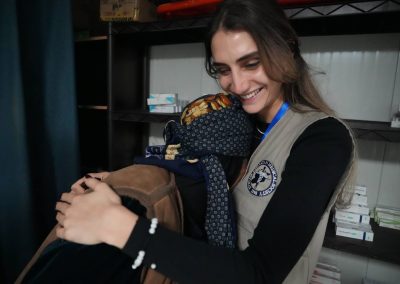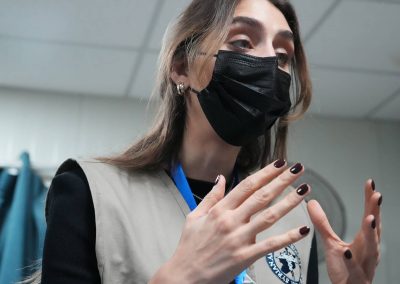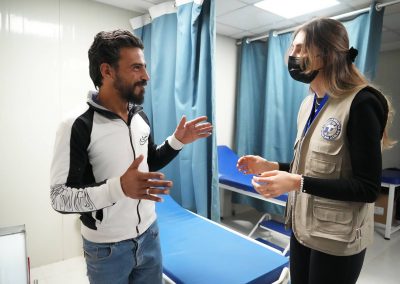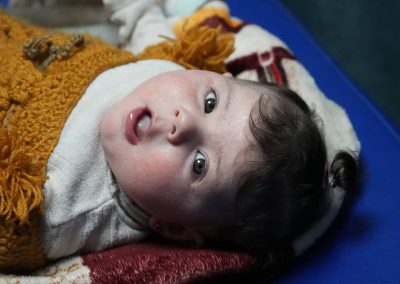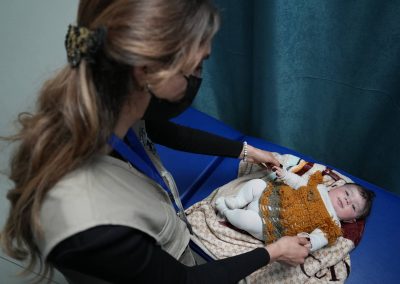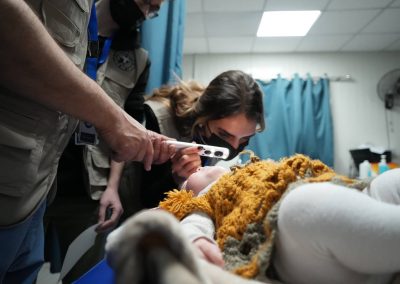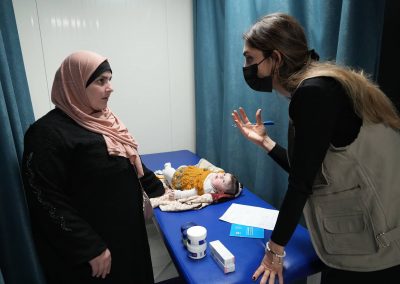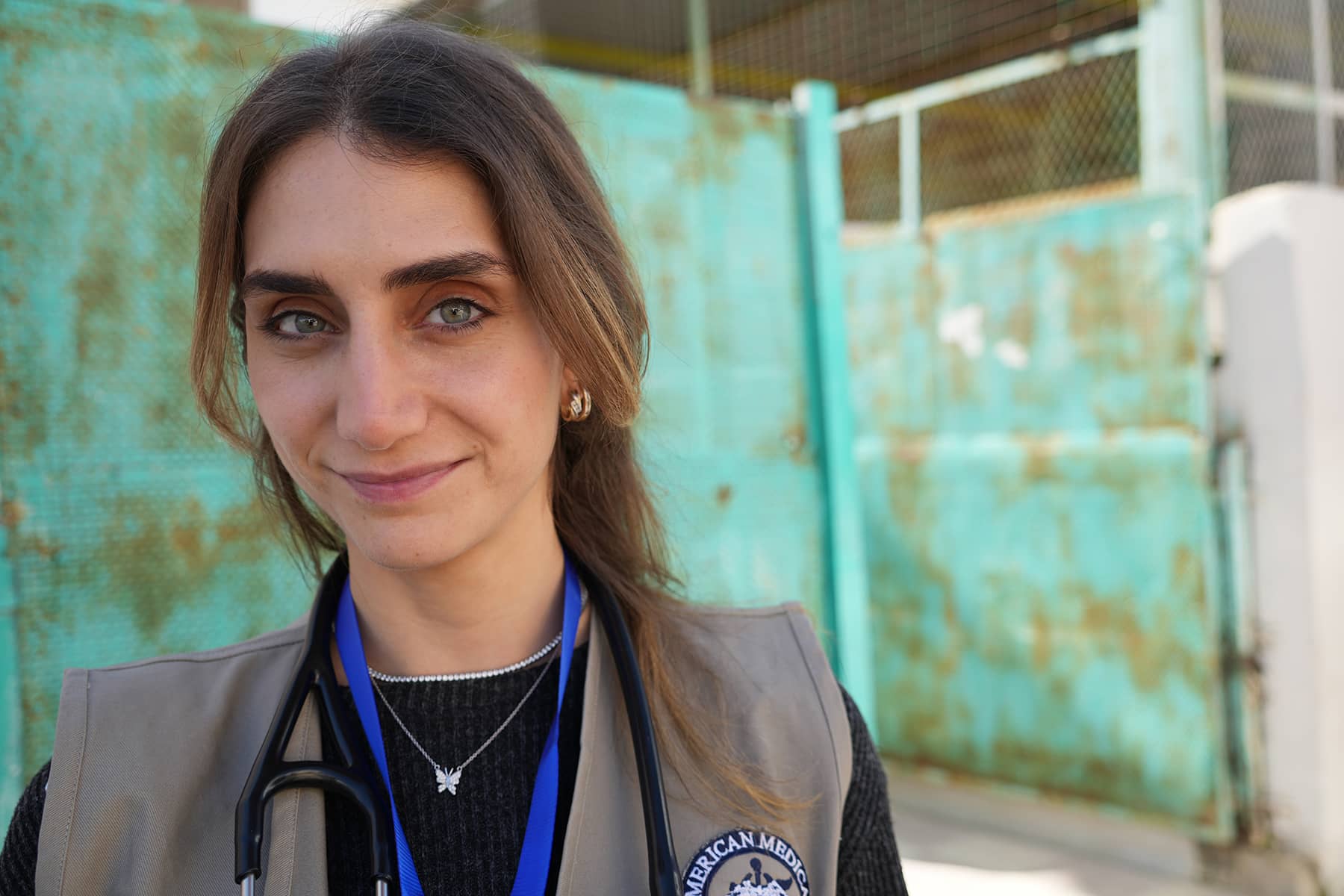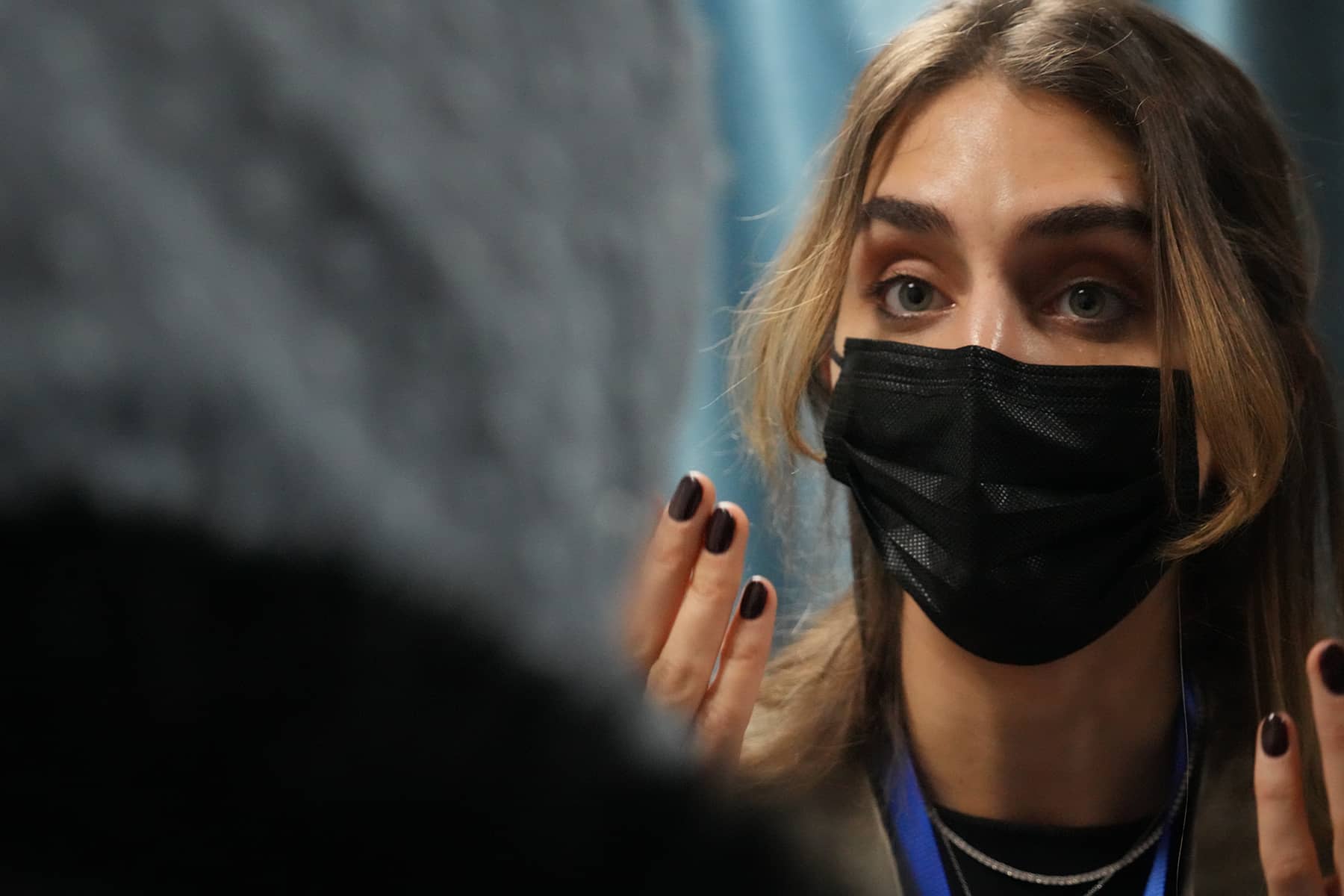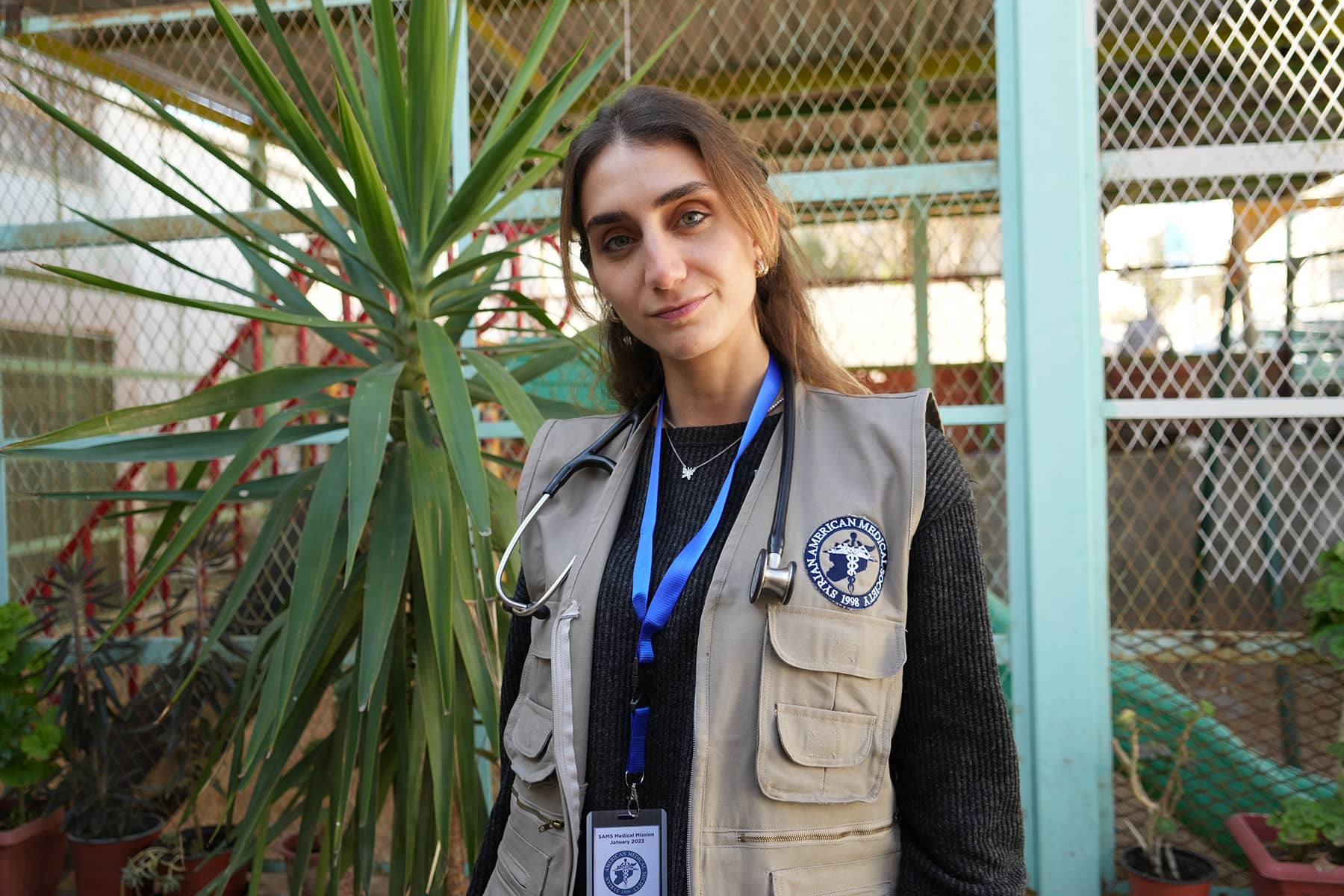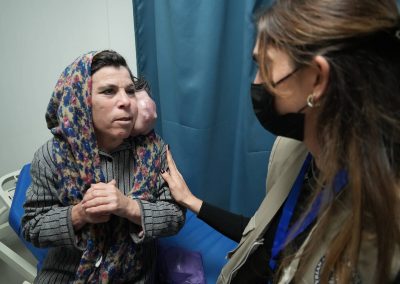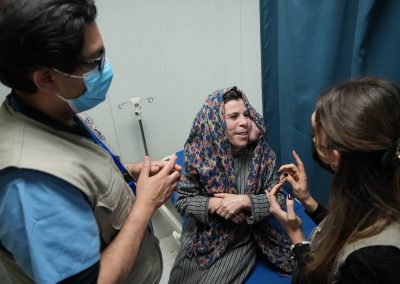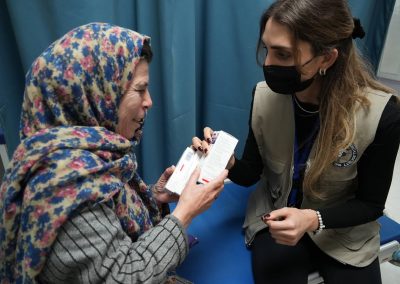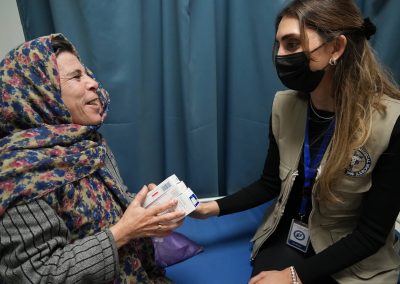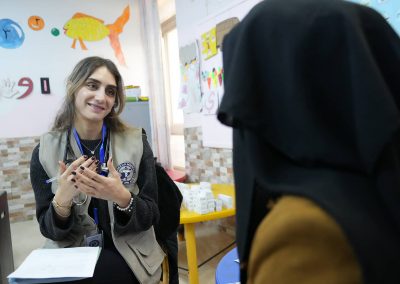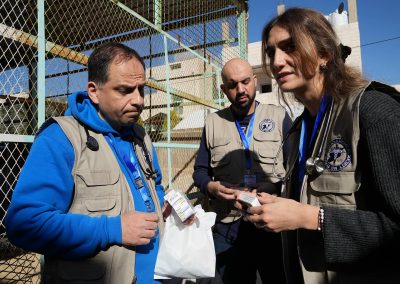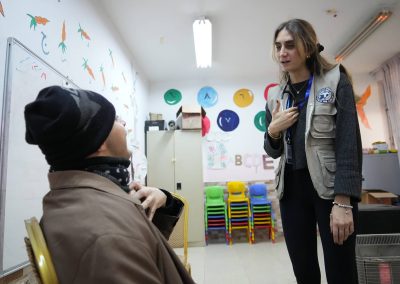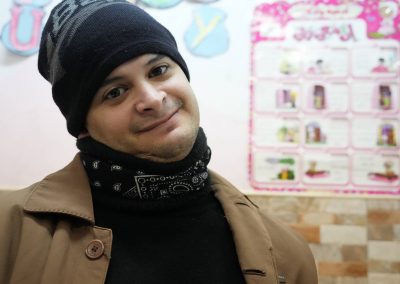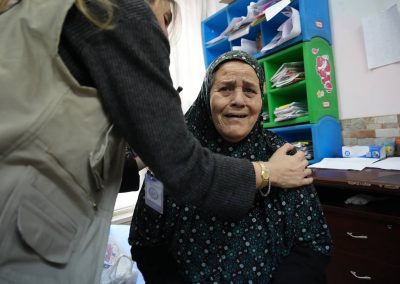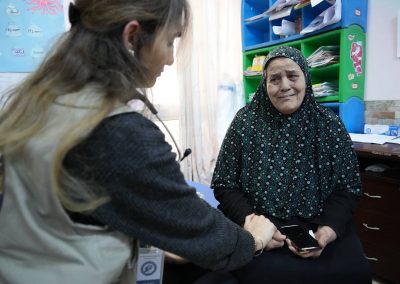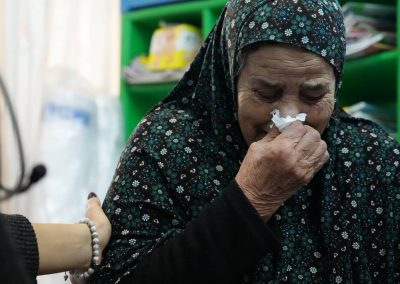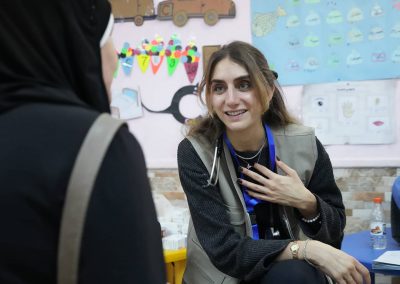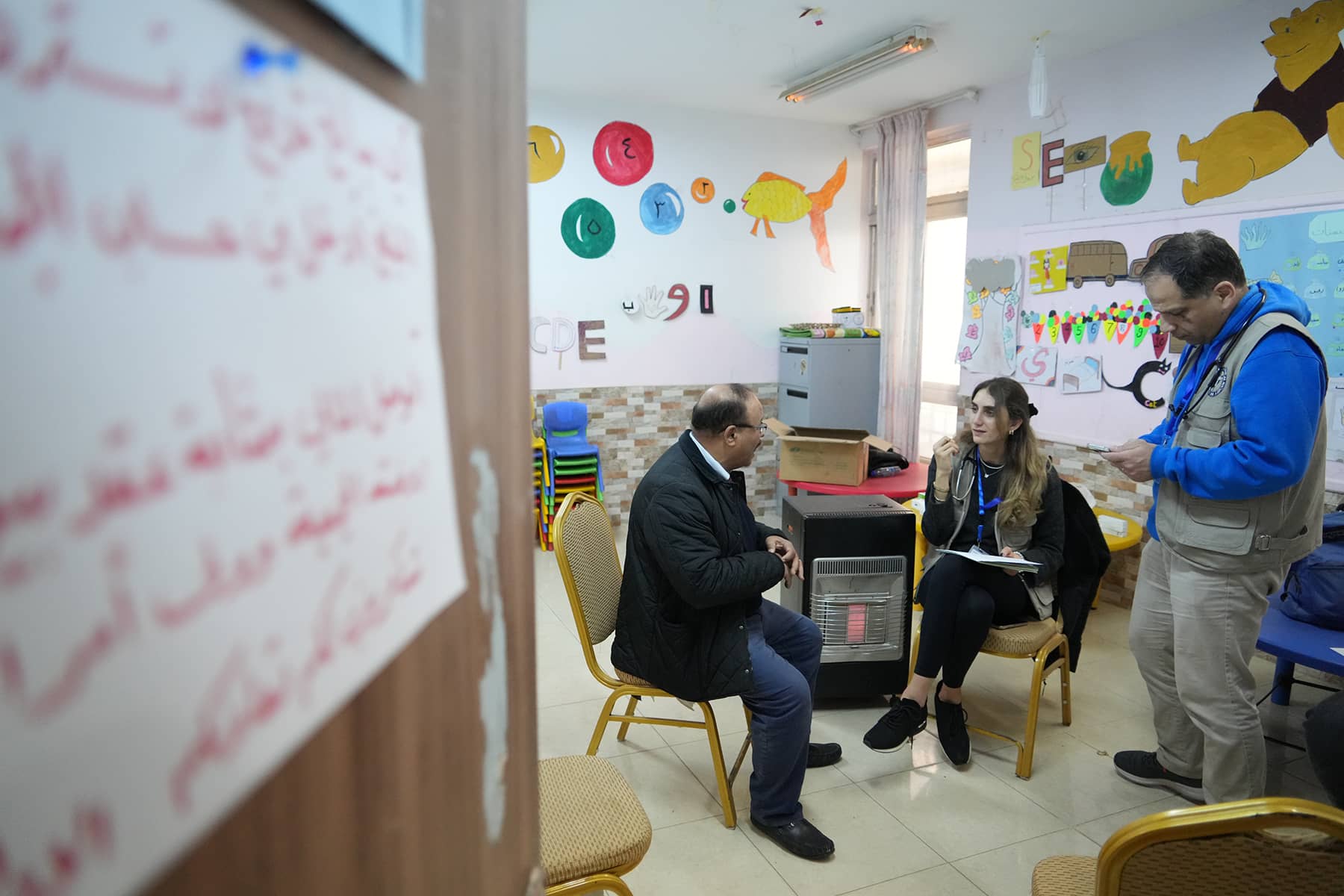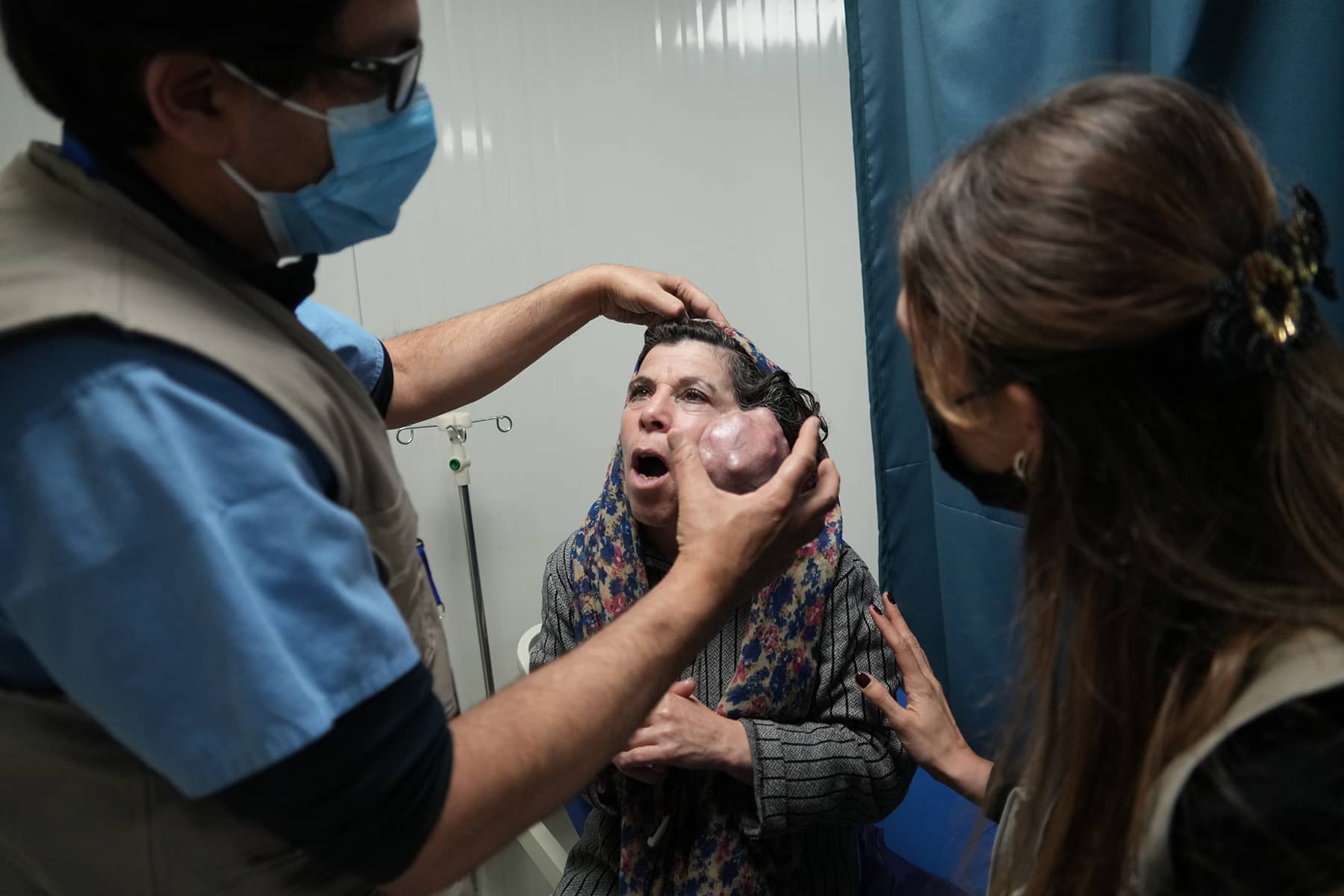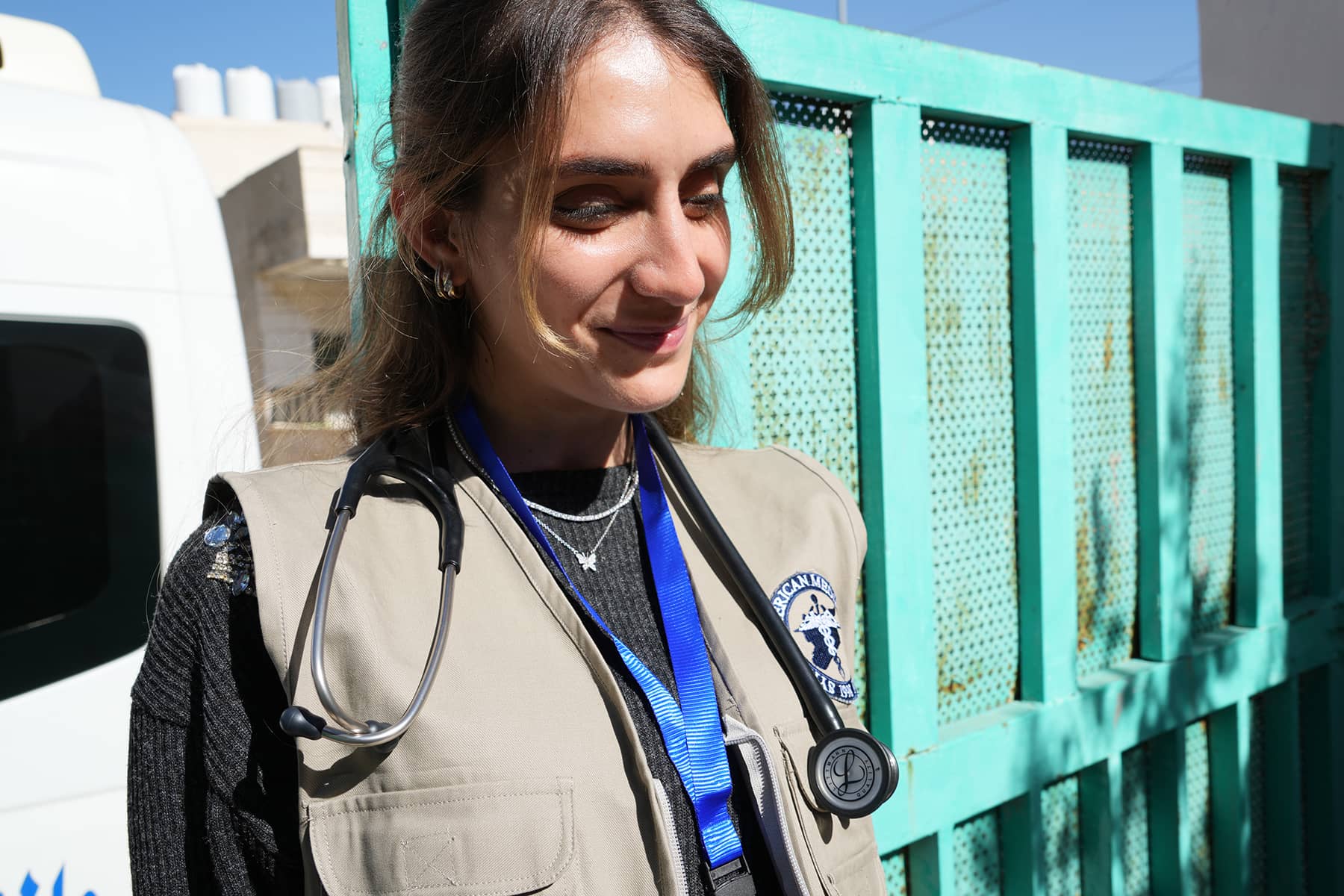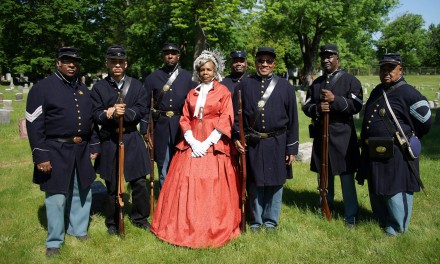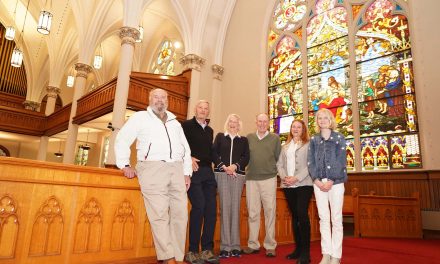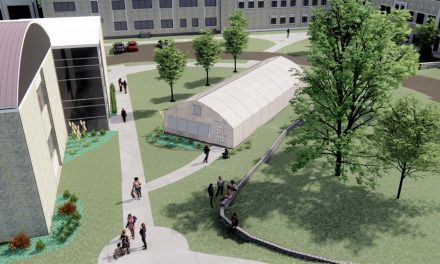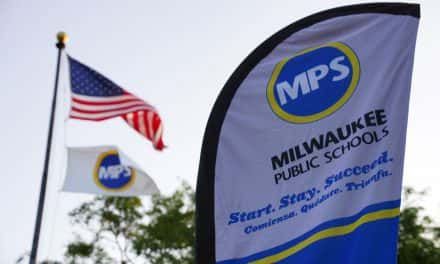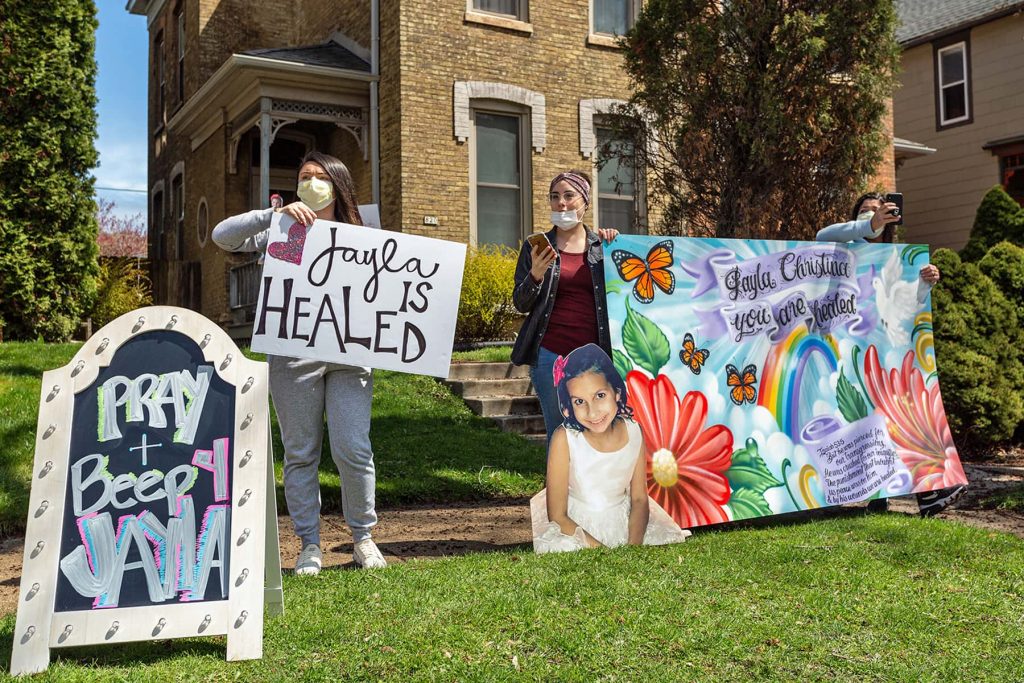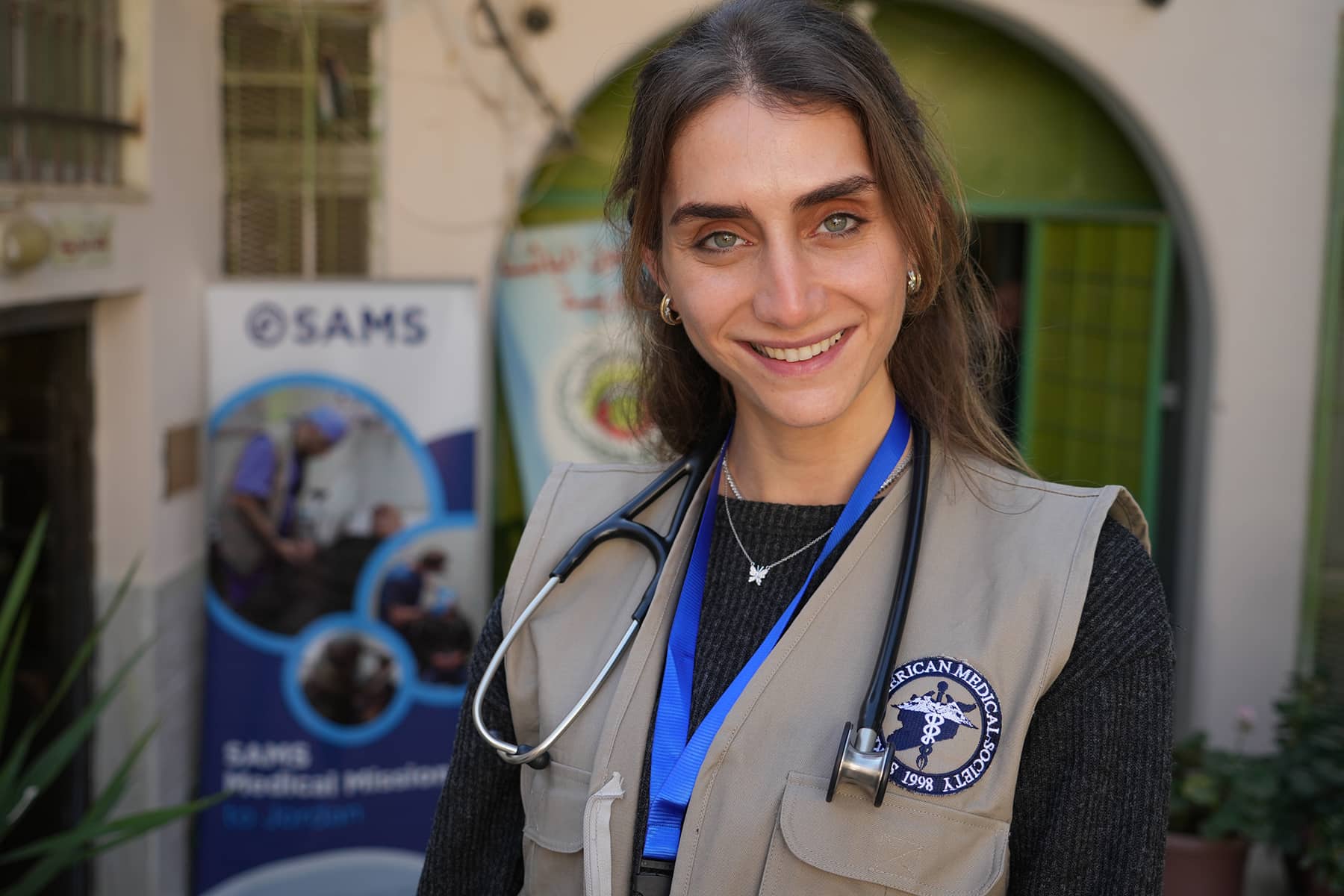
Medical Mission to Jordan: After more than a decade of Civil War in Syria, and continuing conflicts like the unprovoked Russian invasion of Ukraine that further displaced millions of civilians, understanding the longterm conditions that war refugees face remains relevant. But as public attention fades, such topics do not capture headlines today, even as the impact continues to be felt here in Milwaukee. mkeind.com/jordanmedicalmission
Medical professionals spend many years learning, growing, and accomplishing work in their field. For those who were not born in the United States, or are from immigrant families, the path to medical school is often an adventure story in itself. In preparing introductions of the Syrian American Medical Society (SAMS) volunteers who were interviewed for the “Medical Mission to Jordan” series, the depth of what each individual has achieved in their career literally requires a separate article to detail. Being chief of a department, or professor, or research leader, or board chair, are all in addition to the root vocation of their dedicated medical care of adults and pediatric patients. In this context, regardless of position or occupation, all the volunteers of the SAMS Medical Mission arrived in Amman with one purpose, to offer crisis relief to refugees affected by the Syrian Civil War. Exploration of medical backgrounds was explained within each interview to the extent necessary by the participant. While each layer of their medical career and position of responsibility were essential to their mission work in Jordan, those detailed descriptions were actually a distraction in being able to share their story. Who they were “in person” was why they were interviewed. Not who they were “on paper,” which was still immensely impressive but simply too much to unpack in this context.
Q&A with Zein Barakat, medical student
Milwaukee Independent: How were you inspired to follow a career in the medical field?
Zein Barakat: For many medical professionals, the question of “why” they pursued a career in medicine is an easy answer. But in all honesty, there was not a point in my life that formed this decision. It was my entire life journey that lead me to pursue a medical career. I have tried a lot of other professions, but nothing felt enough or sufficient on its own. For me, being a medical professional – it was almost not a choice. It was a road paved for me by God and the universe. I just walked through it, trying to pick as many flowers of knowledge, experiences, and stories along the way.
For me being a doctor is far more than being a physician practicing clinically and treating people. For me being a physician gives me the authority to reach a little higher, reach more people, and reach deeper in their souls, than anyone could. For me, being a physician is giving hope to the hopeless, giving courage to the fearful, and lending a hand to each and every patient I meet. When I chose to be a doctor, I had no other purpose to be and exist. Nothing I pursued was enough, or sufficient enough to fulfill my soul. I wanted to do more and be more and medicine seemed to be the journey I had to pursue.
I would be lying if I said that being a doctor was my end goal, because in fact there is more that I want to achieve and there is more that I need to share with the world. I do not believe that being a doctor is the end of my journey. To me, this is where my real work begins. Thankfully, I am able to incorporate many of my interests by pursuing medicine. I now get to be a physician, a researcher, a healer, a writer, a teacher, and even a model across hospital hallways.
Milwaukee Independent: When did you develop an interest in volunteering to help others, and how did those experiences impact you?
Zein Barakat: I have learned from both sides, from being the one with all the answers and from being the one with all the questions. I grew up in Jordan, to a Palestinian father. My father’s family was forced to flee Palestine and move to Jordan. Since we were kids, we spent time listening to our father’s stories from that time. The urge to help the underprivileged had been instilled into my soul a long time ago. Being surrounded by underprivileged or vulnerable communities was not something foreign to me.
Since I was a child I have always visited refugee camps and orphanages with my mother. Every year I would have a Ramadan Iftar dinner at one of the refugee camps or orphanages, and we would prepare Eid gifts for the kids. As I grew older, this passion grew with me. I continued to participate in community service activities. I took part in tutoring Syrian refugees when I lived in Florida, which has kept me attached to that kind of work even when I was in a foreign country. Those kids were sent to the U.S. at a young age. So to be able to give them that extra help they need to thrive in America, which is quite different than living in the Middle East, was fulfilling.
For quite some time, I have been mentoring autistic children in my community. It is quite challenging for Arab or Muslim parents to find someone to guide their children through their disorder, while still understanding their beliefs and culture. I took it on myself as a responsibility to meet up with them in a casual setting, talk to them, listen to their stories, and provide guidance. I have also been participating in a Saturday school where we teach refugee kids.
Aside from that, I have been a member of Best Buddies for a decade now. Best Buddies is an organization that fosters friendship between people with and without intellectual and developmental disabilities. These people have truly become a family to me, they have been a source of joy and hope. Through them, I have learned the importance of advocacy, compassion, and vulnerability. I have an uncompromising stand that all people have value and equal rights. I am determined to advocate for all vulnerable and underrepresented communities. I was also an active member of Project Downtown Tampa. I gave up my Friday nights to spend time with homeless people, listening to their stories, and sharing their pain. Easing their condition was exactly how I preferred spending my weekend.
Because I lived in different countries and interacted with different cultures. I have developed an eye that focuses on the similarities and overlooks the differences. Working with autistic children, refugees, and people with disabilities – or even better people with different abilities – I was able to personally connect with each of them. I believe there is always a way, sometimes its hidden, blurred, or requires a little more thought, or feelings, but we can always form a real, genuine connection with anyone. I have become a compassionate, understanding, relatable person who is willing to walk that extra mile to form a genuine connection with anyone.
Milwaukee Independent: How did you become involved with the Syrian American Medical Society (SAMS)?
Zein Barakat: We can only hear the living to the extent that we have truly lived, and we can only understand pain and joy to the extent that we have allowed ourselves to be touched and pained by life. The pandemic confined us to the walls of our home, and suddenly life stopped everywhere. Following that, in the past year, my life changed a lot. I went through many personal, emotional, and mental trials, and I noticed a precious part of who I am slowly disengaging. For a little while, I felt unmotivated, and detached from myself.
However, there was still a thin connection that kept me grounded. Being at the hospital, I felt right where I had to be. I felt that I still had a purpose. I truly believed that it is what I did so passionately for my patients that made me revive my purpose and who I am. I also learned that there are no wrong ways, only unexpected paths. In my opinion, the difference between being strong or weak is the honesty with which we face ourselves, accept ourselves, and share ourselves with the world. The experience of that time forced me to grow stronger, yet softer, more passionate, compassionate, and patient. I now live life seeking miracles, because truly everything in life is a miracle, everything happens for me and not to me.
By coincidence, I happened to come across a social media post about the work of SAMS. I applied for a medical volunteer position for their next mission trip, which happened to be in Jordan. When I heard back from the organization that I had been accepted, I was very excited. Not sure what to expect, I went on the January 2023 mission trip with my eyes wide open. I left my mind permeable to all thoughts and ideas. I have learned and gained experiences far beyond just medicine. I gained an insight into humanity, in its most real forms. I met people who were genuine, pure, and unexposed to many of the societal pressures we deal with everyday. I was able to see through the beautiful smiles of all these children, parents, and grandparents. I was able to see their pain. Their ache towards the unfair life journey they had to endure.
These people are missing the most basic needs of living. Whether it was mental, or physical well-being. There people were lacking in the most necessary things. To know that a parent was unable to seek medical care for their child, to get comfort or clarify about their disease and even worse – not be able to afford their treatment – was truly heartbreaking. The most hurtful part was that they were missing the most essential words and feelings that we all require to thrive in this harsh world. I told an 8 year old girl that she was beautiful. Then I asked her if anyone ever told her that, she responded saying: “No, you are the first” and that was painful to hear.
I wish I could have told every child in the Za’atari Refugee Camp that the grass always seems greener on the other side. Our lives seem prettier, more embellished, but your lives are more real, and that does go a long way. Being who you truly are and being able to remain attached to your beliefs and values is one of the most important things in life, and that is very difficult to do living on our side. Make the best out of the life you have, even if it is not the life you imagined for yourself. It is still a chance that the universe felt you deserved. Believe in yourself, believe in God and his plan. Things will get better, much better.
One of the hardest cases we saw at the clinic was that of a 45 year old female patient who came in with a tumor the size of her head bulging from her left cheek. It was painful to witness that lady had been living with this growth for at least two decades of her life. While we invested in our beauty and skin care products, there was a lady who had been unable to seek medical care for a tumor that has been growing for 20 years. That was just one example on how something so evident could be ignored and missed for such a long time. I can only imagine how much that impacted her self-image, her confidence, her mental health, her security, and her life as whole. It was even more hurtful to know that we were not able to do anything surgically about the tumor at that time. All we did was offer hope and comfort. That lady, just like many others at the refugee camp, required attention from medical and humanitarian organizations. If we are silent in situations of injustice, we train ourselves to be numb to everything around us. Even if we fail to prevent injustice, we should never fail to educate, protest, and raise awareness.
Milwaukee Independent: What were you surprised to learn about yourself after your first SAMS mission?
Zein Barakat: What I learned about myself after the SAMS mission trip was that my definition of success was blurred. I always knew it was not the typical financial level, societal status, or academic excellence – but I was not quite sure how to define it personally. Everyday after I would leave the camp, I would relive the moments and situations, and I realized that the experiences that stuck with me the strongest and made me feel the most fulfilled were those that ended with a smile. That to me was my biggest success, my biggest contribution to the SAMS mission trip. I realized that I have an abundance of life, love, and joy that I am always trying to share with the world. I can now confidently say that I define my success personally by my ability to make people around me happy, to do what I love and do it with love, to put my heart into everything I do and do it with passion.
For some people, inspiration is linked to relationships, status, or achievements. But I see those things as temporary or not guaranteed. My inspiration comes from everything within me and everything around me. I find my inspiration in the nature around me, in the wind, in the sky, the sun, the rain, and even the free butterflies. The best thing about all of those is that they will always be there, at least as long as I am alive. They can never be lost, spent, or disappear. My inspiration comes from everything that God has created, and nothing to do with His creations. Inspiration comes in different ways and time, but I have always welcomed it with an open heart. I have learned to be receptive to everything that the universe puts in my path. I was once asked what spirit animal I resemble. My thoughtless, immediate answer was a “butterfly.” It is colorful, it is free, and it is hard for anyone to not smile when they see one.
Milwaukee Independent: What would you say to people to encourage them to volunteer for a medical mission to help Syrian refugees?
Zein Barakat: It is one thing to acknowledge what is going on around the world, but it is a completely different thing to be able to do something about it. Before I went on this mission trip, people were telling me that this will be a life changing experience. Everyday, I would ride the bus to the refugee camp and wonder how my life would change and when.
As we think of change, we think of one major shift. But I learned that the major impact would be a consequence of many small pieces. To me, it was putting a parent’s heart at ease as I comforted them about their child’s diagnosis, or prescribed a cream, an ointment, or a medication for a patient who would not be able to afford it. Or just putting a smile on as many faces as I could.
The Prophet Mohammad said: “You won’t be able to take care of all people financially; instead, let your cheerful face and good manners take care of all of them!”
Our lives are systematic, and chaotic. We do not realize that we have become so embedded in our static lives. We live in a bubble of our own making. We hear about what is going on outside of our bubble, but we rarely get the opportunity to explore or even lend a hand to people outside of our realm. SAMS is a foundation that paved the road for many people to explore and contribute to people in need, and for that I am utterly grateful. Physicians, medical professionals, and volunteers from all over the world gathered for one purpose, one mission. All because of SAMS.
On my last day, three girls called me from across the gate. I ran to them, and they handed me a pair of earrings, a bracelet, and a hair clip. Tearfully, I thanked them and I said I could not accept the gifts. I told them the thought by itself meant the world to me. They responded saying: “Please take them, it will make us happy.”
That was the exact moment I realized that my soul was even more in need of the experience than the patients themselves. That experience shook me. That was the exact instant I knew that my life would change. I could go back with an abundance of compassion, love, and humility. I am confident that will impact the way I practice medicine for the rest of my life. I can easily say, I feel more alive now than ever.
Milwaukee Independent: What would you like to tell people in Milwaukee to help them better understand the Middle East?
Zein Barakat: If I could tell an American one thing about middle eastern people, I would tell them that “we are human.” We might have different cultures, religions, languages, skin colors, but we all belong to humanity. Our strength is in our differences. Our diversity brings us together like pieces of a puzzle. This is how we form a more colorful, rich, and pleasant world for all of us to thrive in.
Milwaukee Independent: Where do you still find hope?
Zein Barakat: We could imagine and construct where we are headed or try to plan and know what belongs to us, and where we belong. But life is not that predictable. Wings do not grow differently to fly east, or west, or south, and neither do our lives. Like birds we are meant to fly and sing and stop wherever we feel our hearts beat a little faster, a little stronger.
Over the years, my mind has gathered places I needed to go, people I needed to meet, selves I needed to be – all to become the person I am today. We humans confuse our time on earth with obsessions of where we are headed, often to the point that we stall our human ability to fly. We frequently dull our need to listen, learn, love, and live, until we are assured that our efforts will take us somewhere. I never asked my parents where we were going, my friends always knew it was best to surprise me with our holiday destination. My belief was that if you enjoy the journey well enough, you will end up right where you need to be. And so, I lived, loved, listened, and learned, whenever I could, and wherever I was.
A physician is quite like a magician. We transform patients. We can make their hearts work again, we can make their blood flow through a clogged vessel, we can slow their heartbeat, or make it faster. We can do wonders. But, what is often overlooked is how that changes us. We can only understand pain to the extent that we allow ourselves to be touched by others. Listening is one of the most powerful tools physicians own. Listening to their stories, breaks walls, pushes over boundaries, and eases us into remembering our common being. Patients are the most vulnerable when they need medical attention. And physicians are their only form of help in that situation. It is part of our role to reach out, touch their hearts, and pull them back to life if need be. But for many conditions, a genuine smile, a caring gesture, or a beautiful word is all it takes sometimes.
Whether you are a florist, a doctor, a lawyer, an architect, or a poet, it is the true vitality of any occupation – the joy, the energy, and the excitement – that guides us to our destination. It is where we feel the most hunger, eagerness, and passion. I, just like a bird, was flying freely through my life – learning what I could learn, loving what I could love, and listening whenever I could. But when I explored the medical field, I felt my heart beat a little faster, a little stronger.
Birds fly freely, but they always travel in a path towards light. I found the light that is guiding my future journey, igniting my curiosity, and carving the place for my talent. I found the career that allows me to be all the characters I want to be – a teacher, a learner, a writer, as well as a magician. And yet, I can still be my own self. I found my nest, and there I was still able to fly, learn, live, love, and listen.
This editorial feature is one of a multi-part explanatory series about the “Dr. Majdi Omar” SAMS Jordan January 2023 Medical Mission. The journalism project embedded a Milwaukee Independent photojournalist, from January 21 to 26, 2023, with a group of Syrian American doctors from Milwaukee and Chicago. It documented their trip to Jordan and the medical work done at clinic locations like Za’atari Camp, Salt, Jerash, En Albasha and Marej in Amman, and Basma in Ma’adab. Medical Mission to Jordan: A journey from Milwaukee to help Syrian Refugees, shares the personal voices, stories, images, and conditions around those involved in the Syrian American Medical Society (SAMS) mission to Jordan. It also explores the refugee experience, and the intimate connections of local medical professionals, who put their work on hold and left their families behind for a couple weeks to provide healing to others who have endured a generation of trauma.
Series: Medical Mission to Jordan
- Medical Mission to Jordan: Traveling from Milwaukee to document the conditions of displaced Syrians
- Refugees in need: How the Syrian American Medical Society is able to provide vital medical services
- Waleed Najeeb: A spiritual duty to bring specialized relief to those suffering from a decade of war
- Za’atari Refugee Camp: Syrians struggle with a decade of life in the bubble of a temporary shelter
- Jihad Shoshara: How medical advocacy empowers Syrians living with guilt and trauma from a distance
- Deadliest in a decade: Untold numbers remain buried under rubble in Syria after devastating earthquake
- Medical Mission to Jordan: A visual diary from a week with Syrian refugees and SAMS volunteers
- Hazar Jaber: Advocating for oral health so poverty does not make sugar into a poison for children
- Bassel Atassi: Holding onto a family identity after Syria went from a home country to a ghost country
- Medical Mission to Jordan: The faces of Syrian refugees and their health struggles after years of war
- Abrar Qureshi: Finding a "Street of Happiness" among the faded ruins of hope in Za’atari
- Abdullah Chahin: Building a collective purpose to provide medical care as a Syrian in exile
- Zein Barakat: A spirit of volunteerism that nurtures an abundance of compassion, love, and humility
- Hima Humeda: A Syrian college student’s story from childhood heart surgeries to caring for war refugees
- A clarity of vision: Giving displaced Syrian children the ability to see a world full of possibilities
The 7.8 magnitude earthquake struck parts of Syria and Türkiye on February 7. It came a week after the SAMS Medical Mission ended, and while Milwaukee Independent finished the final production of this editorial series. The public is encouraged to make donations to the Syrian American Medical Society in support of their vital crisis relief work.
Lее Mаtz
Lее Mаtz

